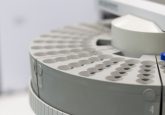Caffeine metabolites as biomarkers for diabetic eye damage

In a cross-sectional study employing 535 participants from the National Health and Nutrition Examination Survey (NHANES), caffeine metabolites in urine have been shown to be correlated with diabetic retinopathy (DR) risk in men.
A study aiming to examine the association between urinary caffeine, caffeine metabolites and self-reported DR risk shows that caffeine urinary metabolites could act as noninvasive biomarkers for DR in men. The study, published in Scientific Reports, enrolled 535 volunteers from the United States with diabetes from the NHANES database, a survey conducted in 2009–2014.
DR is a microvascular diabetes complication and is one of the leading causes of visual impairment and blindness in adults over 50. Although anti-DR interventions have proven effective, they are invasive and costly, making the identification of modifiable risk factors crucial in preventing the onset and development of DR. Many studies have investigated the effect of caffeine on retinal vascular disease, but often with conflicting results, relying on self-reported coffee/caffeine use, which may cause unavoidable recall bias.
You may also be interested in:
- Brainwaves and banter from the biomarker bandwagon
- Webinar Q&A follow-up: the origin-adjusted approach for biomarker quantification by LC–MS
- Analysis of semaglutide from human plasma by LC-MS/MS
In this new study, high-performance liquid chromatography-electrospray ionization-tandem quadrupole mass spectrometry (HPLC–ESI–MS/MS), along with internal standards labelled with stable isotopes, were used to measure urinary caffeine and 14 of its metabolites. After adjusting for age, sex, race, BMI, smoking staus, alcohol consumption, duration of diabetes, glycated hemoglobin, hypertension and total energy intake, the team discovered that In transformed 1-methyluric acid (1-MU) and 5-acetylamino-6-amino-3-methyluracil (AAMU) — both major metabolites of caffeine in humans — were associated with an increased DR risk in US men. In median split analysis, 1,7-dimethylurea, caffeine and AAMU also showed increased DR associations, particularly in males.
Relying on self-reported data, the findings indicate correlation but not causation. While further research is needed to support these results, the study does highlight caffeine biomarkers as potential indicators of DR risk and may aid in early DR detection and preventative care strategies.






